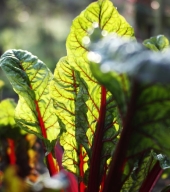
 3
3











This is the camera I got - https://permies.com/t/116252/buying-DSLR-Mirrorless-camera-time#970164











 7
7















 2
2







 2
2




Some places need to be wild














Some places need to be wild




































 3
3




Some places need to be wild




Eric Hanson wrote:R ranson,
I am just curious here, but I am wondering why all the concern about 20 megapixels. I have had my DSLR for about a decade and love using it with photoshop and Lightroom, but my 12mp have been more than adequate, almost excessive. Again, in my experience the lens is much more important than extremely high megapixel ratings.
And again, just as a question, you stated that you were looking at something in the professional category. Could you explain to me what a professional camera is to you? What ratings or features would you need?





















Some places need to be wild
 4
4




Learn to dance in the rain.
www.serenityhillhomestead.com
 1
1








Fred Norman wrote:Try visiting dpreview. Lots of great info about cameras and photography.
Sourdough Without Fail Natural Small Batch Cheesemaking A Year in an Off-Grid Kitchen Backyard Dairy Goats My website @NourishingPermaculture @KateDownham






 3
3




Sourdough Without Fail Natural Small Batch Cheesemaking A Year in an Off-Grid Kitchen Backyard Dairy Goats My website @NourishingPermaculture @KateDownham






 2
2






 4
4















 2
2




Sourdough Without Fail Natural Small Batch Cheesemaking A Year in an Off-Grid Kitchen Backyard Dairy Goats My website @NourishingPermaculture @KateDownham






 1
1

































 1
1




Sourdough Without Fail Natural Small Batch Cheesemaking A Year in an Off-Grid Kitchen Backyard Dairy Goats My website @NourishingPermaculture @KateDownham

















 2
2




Sourdough Without Fail Natural Small Batch Cheesemaking A Year in an Off-Grid Kitchen Backyard Dairy Goats My website @NourishingPermaculture @KateDownham




























 1
1





















 1
1




Some places need to be wild





































 3
3











 3
3












| I agree. Here's the link: http://stoves2.com |






